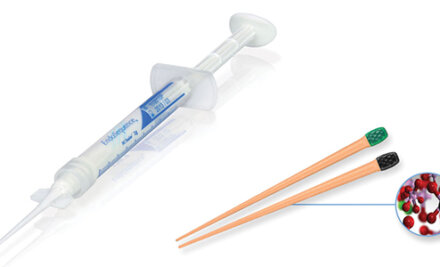Have you heard of a silent tooth infection? Certain root canal infections present themselves with noticeable pain to a patient, though others persist – and potentially spread – without outward signs.
An infection, whether silent or noticeable, involves persistent inflammation, and that inflammation can occur with or without pain. This infection can be the result of a root canal failure – that is, involves persistent inflammation, which can occur with or without pain. This type of infection can result from a dying tooth or root canal therapy failure – that is, an RCT that has not been cleaned thoroughly or sealed in an ideal manner.
A successful root canal treatment results in a healthy, fully functional tooth and periodontal ligament. At Integrative Endodontics, we use advanced cleaning technologies and bioceramic sealants with a tight fit to best serve our patients – and, naturally, their overall health as well.
Our meticulous doctors examine patients for an inflamed tooth nerve (aka inflammation of tooth pulp). Using the top dental technology available, our endodontists also look for signs of a tooth infection when a patient comes to us in pain.
Get a complete tooth check-up.
If you are someone who underwent root canal therapy in the past, we provide a cone beam computed tomography (CBCT, aka 3D dental imaging) scan as a check-up on the tooth and surrounding structures’ healing. To protect your wellness, we may suggest this whether or not you are experiencing symptoms of tooth inflammation or infection.
You’re welcome to schedule an appointment even if you are not our patient for other services.
Root Canal Infection
FAQs
Sometimes, when the inside of your tooth is infected and inflamed, the root canal is alive but swollen.
Unlike when you have a cut or infection on your skin, which stretches to accommodate the healing process, the pulp is constrained by the immobile structure of the tooth. In this circumstance, the inflamed pulp tissue pushes against the tooth and causes acute tooth pain. If too much pressure is created within the pulp, it eventually dies inside the tooth.
Other stages and types of dental infection and inflammation may be present. Visiting an endodontist for a diagnosis is critical in order to receive the proper diagnosis and find the most conservative approach to saving your tooth. To check on your tooth, book your in-office consultation →
As much as possible, we also accommodate emergency dental situations. Learn more about our emergency services.
Since a tooth requiring a root canal treatment can harbor a silent infection (i.e., without noticeable symptoms like acute pain), the transformation of the tooth’s color may be the only outward indication of issues within the tooth.
A yellow tint may indicate the nerve has shut off and new tooth structure has grown and calcified.
A gray coloration may reveal that the nerve inside has died.
If you happen to have a pink coloration in your tooth, you may have tooth resorption occurring.
To gain a full picture of a tooth’s health, Integrative Endodontics utilizes cone beam computed tomography (CBCT) as part of its process for diagnosing patients. You are welcome to schedule a CBCT dental scan on its own, even if you are not our patient for other services. Request a CBCT appointment →
While this varies on a case-by-case basis, there are three main stages of root canal inflammation and infection: Reversible Inflammation → Irreversible Inflammation → Infection.
At the first stage, reversible inflammation, we typically treat patients with regenerative endodontics.
If the inflammation has progressed to an irreversible stage, the usual course of treatment is integrative root canal therapy.
If a tooth has been treated with a root canal procedure in the past but shows signs of recurrent or persistent infection, a retreatment procedure is recommended using Light & Sound Endodontics.
If the integrative approach has been completed, the tooth and its surrounding biological structures first need sufficient time to heal (up to 2 years, in some cases). At that point, if there are still signs of persistent infection in the bone outside of the root structure, our doctors may recommend endodontic microsurgery.
Visit the links above to learn about our treatment of each stage.
As an integrative practice, we incorporate and offer a range of healing modalities. Whenever the body is fighting inflammation or an infection, we believe in supporting wellness from all angles. Our office offers safe, supportive services to its patients – both during treatments and on a quarterly basis post-treatment.




